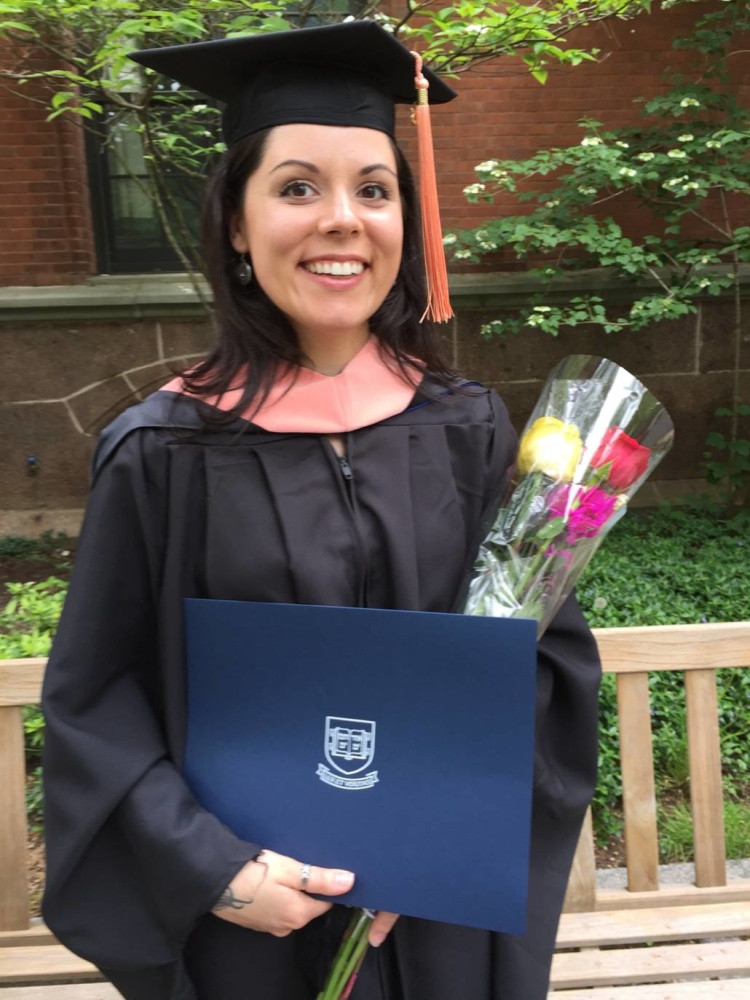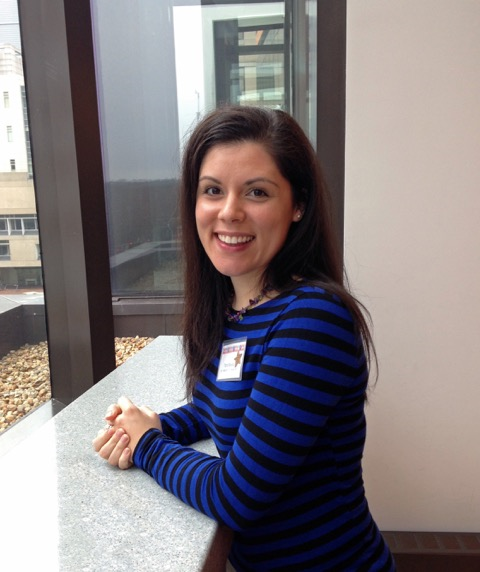
By Tara Baysol
I was diagnosed with brain cancer in 2013 at the age of 27. Just prior to my diagnosis, I had started a new, exciting chapter as a Yale graduate student. My self-confidence was at an all-time high as I had survived my chaotic early 20s and was beginning to really figure things out. But then the symptoms arrived, and they led to a discovery that demolished everything.
For a while I felt like I was drowning in confusion from uncharted territories like specialty care, surgery, and recovery, and the psychosocial questions that came with them. These included the impacts of chronic disease, financial insecurity, finding community, rebuilding an identity, accepting support from family and friends, uncertainty of everything (except death), and – the hardest one – coping with the idea of death and dying. With the help of a counselor and Dana-Farber’s Young Adult Program (YAP), I began sorting through the rubble that was my life, and I developed a desire to have tough conversations about death and dying with my family. My intention wasn’t to create paranoia about death, but rather to share my thoughts with my family and feel less alone on this journey that’s been full of uncertainty.
At first, the topic was challenging for us, especially for my mother. Her well-intentioned initial reaction was to tell me to not focus on the negative and to hope and pray for a cure or a miracle. But what has really helped me cope was the realization that this topic is not something unique to me and people like me, but rather a conversation we all should be having regardless of age and health status.
Read More
Nobody lives forever, and even though some people may seem to have better odds than others, tomorrow is not guaranteed to anyone. Unfortunately, our society makes death and dying very frightening because the only time people get asked about their wishes and end-of-life care is when death seems to be looming directly over them. This prevents us from developing any level of familiarity, comfort, and acceptance with this topic.
In an effort to combat this, I began advocating for my entire family to have these conversations and revisit them regularly. I started by mentioning my thoughts on certain topics, like the extent of medical interventions I’d be willing to try, how I’d like to be remembered, and what I’d like done with my material belongings. But I didn’t stop there. I followed up with an email to my spouse and our families that laid out the importance of us all creating a living will and learning each other’s end-of-life wishes. I ended it with me requesting everyone to complete one, if they haven’t already done so. It was great to receive such thoughtful replies and commitments to addressing this topic, but not everyone was on board. Some simply could not make a commitment, but I respected their decision and was still thrilled to raise awareness on the subject and to receive their support. When the time comes, we will be able to revisit this topic as a familiar concept instead of approaching it for the first time during devastating circumstances.

These tough conversations have opened a door for all of my loved ones to develop a voice for their desires to be comforted, supported, treated, and remembered. At no point are we giving up hope by discussing death; we are simply ensuring that our wishes are communicated and respected.
While there are very real emotional and social challenges associated with this topic, I’m empowered by the idea that there are still things out there that I can control. This has been a rewarding and welcomed realization after struggling to manage the overwhelming feelings of uncertainty and loss of control that formed after my diagnosis. I have found strength in focusing on how I perceive what I cannot change, and I hope others can find strength in that as well.
If you are inspired to begin having these conversations with your loved ones, I encourage you to find resources like “Voicing My Choices” and “Five Wishes” to help make processing and addressing this topic a little easier.”

THIS: “At no point are we giving up hope by discussing death; we are simply ensuring that our wishes are communicated and respected.”
I will hold on to this.